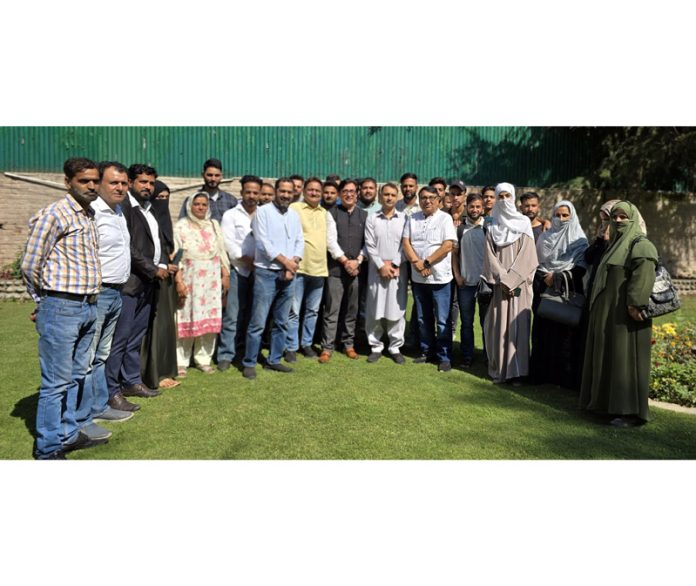A cultural colossus, a man of many abilities, rituals, words, symbols and incarnations, who treasured Malawi to the core and always wanted the finest for the country – Father Claude Boucher breathed his last on August 26, 2024, at Kamuzu Central Hospital in Lilongwe after a long illness. Born in 1941, Boucher just celebrated his 83rd birthday on August 2. Boucher was such a giant of a missionary, a man of stories and histories, who was born in Canada but left his original home to journey to Malawi in 1967 where he would later establish Kungoni Centre of Culture and Art at Mua in Dedza in 1976.
Since founding Kungoni, Boucher, who was laid to rest on Thursday, never looked back, He devoted his life to researching, promoting and preserving the country’s culture and through his feats, he linked religion with culture showing the world that the two are inseparable. Boucher has left a legacy that will live on at Kungoni, a home that gave him contentment. His eloquence in Chichewa language was exclusive no wonder he won admiration from many people that visited Kungoni during educational trips or annual open day outings.

“Many people feel culture is useless and the country has completely neglected it. This is why today, we have people, who are know-it-all (nzeru zayekha) , people and leaders, who are corrupt and have no love for Malawi. We need to go back to our culture and bring back our umunthu,” he told The Daily Times in 2013.
Boucher, as a man of many faces, also used his artistic talent to pass on the skills to people surrounding Kungoni. Today there are many wood carvers around the area. Joseph John Kadzombe Gama, who worked with Boucher from 1994 and leads a cultural group that performs different traditional dances fused with drama, describes Achisale as a father figure who transformed Kungoni and empowered a lot of people.
“As a father, I first met him at a different church during a service. I should say it here that Achisale was blessed with recognising a person’s potential and in me, he saw great talent and he decided to utilise me after I also played a character during Christmas at another church service,” Gama said. Known outside the country through his publications and other artistic works, Boucher ended up getting recognised at home by Shareworld Open University in 2014 with an award of an honorary Doctor of Philosophy degree.
In 2017, Boucher received his second honorary Doctorate Degree in the same discipline conferred by Mzuzu University for his true missionary work couched in education, training and ethnology, and for making religion accessible. When he arrived in Malawi, he spent the years 1967 to 1970 learning to speak local languages with Chichewa the main focus. The period of 1970 to 1976 taught Boucher to think in the culture whereas the period 1977 to 2000 brought about the possibility of acting in the culture by establishing the Kungoni Centre of Culture and Arts and its various activities.
Father Boucher spent his entire life learning and studying the rituals and the ceremonies of the Chewa people looking at birth, initiation, marriage, funerals and the meanings of the dances from Gule Wamkulu – The Great Dance. Joining several people in mourning Boucher, Wise Manda wrote on his social media page that Father Boucher was one of the few people who did not see demons in African culture. “He had his personal curiosities, yes, but the man had a special interest in Malawi culture.
I would say he was a true Pan-Africanist. When you go to Kungoni, where I have been many times since I was a little boy, you will learn a thing or two about our culture,” Manda said. He adds that in the rooms at the lodge, Namalikhate, at Kungoni are fascinating masks that represent spirits, with precise captions that explain what spirit it is.
“There is culture in the bathroom; there is culture in the kitchen. Culture on the roof. It is just amazing.
You can move from Namalikhate and go have a chat with the people chiseling these masks and more others. You can buy too. You can go to the hall, where you will experience the Ingoma dance.
Gule Wamkulu too,” Manda said. To Manda, Boucher gave him and many other children in those days the experience the elite kids do have. “He created in me and most people at Mua Parish memories,” Manda said.
Father Brendan O’shea (Angozo), who took over from Boucher as director of Kungoni Centre of Culture and Arts, said the world has lost a great man. “A giant of a person is gone. God gave us and God has called him to his glory,” O’shea said.
Jacaranda Cultural Centre (JCC) Director Luc Deschamps describes Boucher as an extraordinary man. “When you met him, you could feel the spiritual density of the man. In a certain way, he was a mysterious man, a man, who knew the secrets of the Chewa initiation, and who during his entire life created fusion between the beliefs of the Catholic and the Chewa people,” Deschamps said.
He further said that Boucher loved Malawi passionately; he spoke the deep, rich Chichewa of the elders, full of proverbs in which he extracted wisdom and traditional lessons for the youth and art, which to him was everywhere. Deschamps first met Father Boucher in 1994 when they organised the first Kungoni Art Exhibition at French Cultural Centre in Blantyre. “I will never forget when he took me in his car and we went to a church in rural village where he conducted a mass,” the French Honorary Consul to Malawi said.
According to Deschamps, the singing, the dancing and the joy were so beautiful during the ceremony. And so, when Descamps came back to Malawi and created JCC, he did not hesitate to go back to Mua Mission to discuss with Boucher. “Every year, we would do an exhibition at JCC whose artworks were full of analysis and commentaries of Malawi society and politics.
I had never met a man who could create a symbiosis of cultures, religions, art and nature in this way,” he said. At Mua, Deschamps said they would always find Boucher sitting at the long, beautiful wooden table on the showroom, working and listing down the sculptures photographs. “He was a great scholar.
Even after the stroke that paralysed his right hand side two years ago, he kept on writing his journal with his left hand, slowly but surely. Everyday a few words in Chichewa, French or English depending on his feelings and the subject matter of the day, in the tradition of the White Fathers, who created Mua Mission in 1902,” he said. And for Deschamps, he feels the soul and spirit of Boucher will forever be at Mua Mission, encouraging the country to continue his great work of preserving the heritage of Malawi and the dialogues between cultures.
Father Boucher built, decorated and created his life work at the Chamare Museum with, at its centre, the tree of masks towering under the roof of reeds and branches plowing under the hundreds of masks of all colours, shapes, animals, men and women. Walking around the tree of the Chamare Museum is a deep experience of humility and reflection..



















